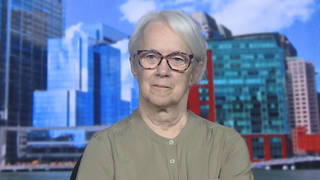
Topics
A week after the September 11th attacks, President George Bush used the rhetoric of retribution to declare war onterrorism. “We will bring the terrorists to justice,” he told a joint session of Congress, “or we will bring justiceto the terrorists.” If you listen to the rhetoric of the Bush administration and the major media, you will come tobelieve that United States has mounted a military offensive against militant Islamic fundamentalism- in the name offreedom and democracy. “If you’re not with us, you’re against us,” Bush tells the world. Bush’s rhetoric to theAmerican people over the last few months sets up a perfect binary opposition between Islamic fundamentalism and thefundamentalism of capitalism, where there is good and evil and nothing in between.
But civil libertarians all over the world are concerned that democracy, rather than terrorism, will be the mainvictim of the so-called “war on terrorism.” They say that the rhetoric of the “war against terrorism” has givenlicense to authoritarian rulers to define their own dissidents as terrorists.
In Benjamin Barber’s book ??Jihad vs. McWorld, he describes a clash of two sets of forces: “jihad,” whichrepresents reactionary fundamentalism, and “McWorld,” a term he uses to describe aggressive economic and culturalglobalization. And although these forces seem to be opposing, Barber says they are actually interdependent—and thatboth are indifferent to the fate of freedom. These terms describe well the current conflict.
Tape:
- President Bush and Secretary Of State Donald Rumsfeld audio clips
Guests:
- Mark Crispin Miller, media critic, professor of media ecology at New York University, and the author of??The Bush Dyslexicon: Observations on a National Disorder.
- Tamara Straus, senior editor at Alternet.org.
Related link:












Media Options